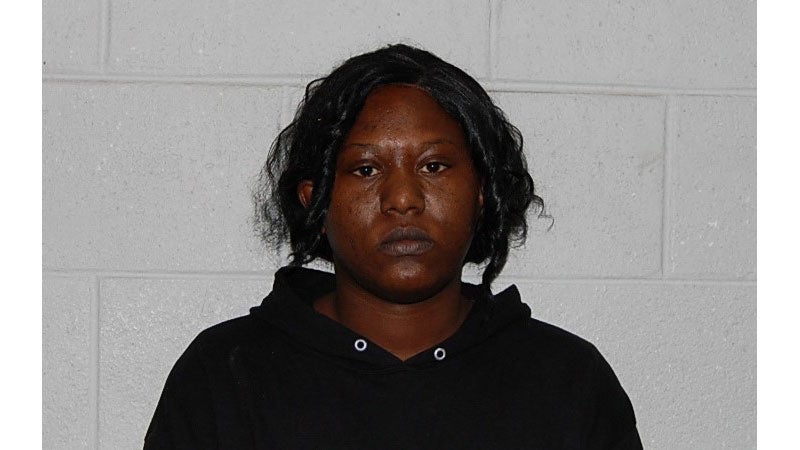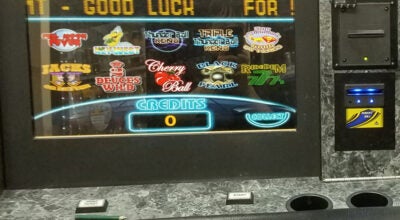Town residents lament loss of recycling
Published 5:26 pm Tuesday, January 12, 2021
Catherine Vines, a resident of Smithfield’s Jericho Estates development, has tried several times over the past month to be put on a list of households seeking to arrange private pickup of their recyclables.
Effective this week, Smithfield will end its municipal recycling contract with Bay Disposal in accordance with budget cuts its Town Council adopted in June 2020. A final pickup will occur Jan. 14 for the west side of town and Jan. 15 for the east side — during which Bay will collect the blue and green bins issued to Smithfield’s residents.
Vines called Bay in early December to attempt to arrange private pickup of her recyclables at her own expense, which she said resulted in her being told to contact the town. But when she did so, town officials told her to contact Bay. Vines then reached out to Bay again, and was told the company was considering offering private recycling to interested town residents for a quarterly or monthly payment — if at least 1,000 town residents expressed interest in such a service.
“How do I sign up?” she asked.
Bay’s answer, she said, was that no such list existed, and wouldn’t until the company made its final decision in January on whether to offer Smithfield residents the option of continuing to recycle privately.
Brandon Newsome, a customer service supervisor with Bay, told The Smithfield Times Dec. 17 that as of that date, 45 Smithfield residents had contacted the company to continue recycling privately.
“So many of us residents are searching to know just where this ’45’ number is coming from,” Vines said. “There was this reluctance to take my name … no one ever called me … they are really trying really hard, in my opinion, to discourage people from getting on this supposed list.”
When Vines called Bay back Dec. 31 — her third to Bay call on the matter — she was told once again that no such list existed for her to add her name.
Lindsay Paiz, however, says she was given the opportunity to add her name to such a list when she called Bay on Dec. 24. She’s a resident of Smithfield’s Scots Landing development on the east end of town.
“I have two recycle bins, so I was paying quarterly for my second bin and I wanted instructions on what to do,” she said. “While on the phone, the employee asked me if I wanted to sign the petition to continue service in Smithfield. It seems like there may be a miscommunication at Bay, possibly. From what I’ve read on NextDoor, the petition is over and not enough signatures were gathered.”
NextDoor.com is a hyperlocal social media forum that allows residents of specific neighborhoods to exchange information, goods and services with their neighbors. Since November, there have been several posts from the Grimesland, Scots Landing and Historic Smithfield neighborhoods regarding recycling.
On Jan. 6, Smithfield Town Manager Michael Stallings told The Smithfield Times it was his understanding that Bay Disposal was indeed “maintaining a list of individuals that are interested in continuing the recycling service.”
Newsome, however, told the paper Jan. 7 that Bay has now decided not to offer private pickup of recycling once its contract with Smithfield ends.
“There has not been sufficient interest to continue recycling at this time,” Newsome said.
“They might have gotten more sign-ups if they would answer their phone,” said Historic Smithfield resident Tamara Detrick on NextDoor Jan. 5. “I called twice on different days (including yesterday) and was automatically put on hold for so long I gave up. I was never able to reach a live person.”
Virginia Soule, another Smithfield resident on NextDoor, says Bay told her those who do not place their recycling bins curbside Jan. 14 or 15 for pickup will be billed $16.50 quarterly to use it as an additional trash can.
“I even asked them if we could purchase another trash can with no further fees but the answer was no,” she said. “They tried to tell me Waste Management was now providing recycling but after further research that was for Smithfield, Rhode Island, not Smithfield, Virginia.”
Asked how many town residents were on Bay’s alleged list of those wanting private recycling pickup as of Jan. 6, Newsome wasn’t specific.
“We have just shy of 1,200 residential accounts; not all of those accounts have recycling, however,” he said.
As for the alleged difficulties town residents have encountered over the past month in getting in touch with Bay to arrange to be on said list, Newsome denied that the company had been unresponsive.
“Residents have always been able to reach Bay Disposal directly at 757-857-9700 to speak with a customer service representative who could assist them,” he said. “We track call volumes and have always been available to Smithfield residents should they have need of calling us. Smithfield residents now have the option of requesting a second trash can if they so desire, but the recycling program is ending with the pickups on January 14th and 15th.”
Stallings confirmed that town residents who choose to keep their recycling bin to use as a second trash can will be billed directly by Bay for the additional can. He, however, was uncertain whether the $16.50 quarterly fee was the correct dollar amount.
“That would need to come from Bay,” he said.
Town budget deficit?
Smithfield’s Town Council made the decision to cut recycling from its budget in June 2020, acting on the advice of Town Treasurer Ellen Minga. She had recommended the town end its recycling contract with Bay and impose a $6.01-per-month trash collection fee on residents as a way of offsetting $300,000, mostly in meals tax revenue, she predicted the town would not receive during the first quarter of the 2020-2021 fiscal year due to the economic impacts of the COVID-19 pandemic. Cutting recycling by itself was supposed to save Smithfield roughly $100,000 a year, according to the town’s Fall 2020 municipal newsletter.
The town’s fiscal year runs July 1 through June 30, meaning the first quarter would have occurred July through September last year. Asked whether this meals tax deficit had in fact occurred as predicted, Stallings said Smithfield didn’t have specific dollar amounts for its total meals tax revenue for the first quarter, but on Jan. 6, added that as of that date, it appeared that the town’s meals tax was coming in about the same as last year.
“So relatively flat,” Stallings said — meaning no surplus and, more importantly, no deficit.
County-wide, Isle of Wight actually took in a $2,028 surplus in meals taxes July through September 2020 — a 1.4% increase compared to the same three-month timeframe in 2019, according to figures provided by Assistant County Administrator Don Robertson.
In the town of Windsor, first-quarter meals tax revenue fell just $4,885 — or roughly 4.4% — from first quarter collections the previous fiscal year, according to data provided by Windsor Town Manager William Saunders.
No one spoke during the town’s June 2 public hearing on the town’s budget, though the proposed budget presented to residents at that time included a $9.70-per-month trash fee. Minga’s memorandum to Town Council members attached with that meeting’s agenda stated the town was in talks with Bay “regarding the possibility of amending our contract to eliminate recycling,” which could reduce this fee to roughly $6 per month.
That meeting was continued to June 22, at which Councilman Wayne Hall made a motion to amend the budget to do away with recycling, but keep trash pickup included with the taxes town residents already pay. That motion failed in a 3-3 tie, with Mayor Carter Williams and Councilmen Randy Pack and Michael Smith voting nay. Pack then made the motion to do away with recycling and adopt the $6.01-per-month trash pickup fee, amounting to $72.12 per year. That motion passed 4-2, with Williams and Hall voting nay.
Recyclables not being recycled?
The town’s newsletter had also claimed a shift in world markets had caused the demand for recyclables to dry up, leaving incineration as the only cost-effective option. Most of the recyclables collected in Smithfield are actually not being recycled, but rather are shipped to the Wheelabrator waste-to-energy power plant in Portsmouth, Stallings had said.
Newsome, however, estimates only 30% of the recyclables Bay collects throughout Hampton Roads gets incinerated. The remaining 70%, he said, goes to a processing facility.
According to The New York Times, American municipalities, in years past, would have shipped much of their used paper, plastics and other scrap to China for processing, but in 2017, China announced it no longer wanted to import “foreign garbage.” Since Jan. 1, 2018, it has banned the import of various types of plastic and paper, and tightened standards for materials it will accept. While some waste management companies have made arrangements to send their recyclables to domestic recycling plants or to ship them to other countries, “others have been unable to find a substitute for the Chinese market.”
According to Tad Phillips, vice president of business development for TFC Recycling, TFC’s materials recovery facility in Chesapeake processed and shipped just over 100,000 tons of single-stream recycling collected from nine Hampton Roads localities, including the city of Suffolk, which contracts with TFC for recycling and the Southeastern Public Service Authority for trash pickup. Bay Disposal does not currently use TFC to process the recyclables it collects, but “I have reached out to the town of Smithfield administration and offered to discuss recycling options,” Phillips said.
According to a November 2019 Virginian-Pilot story, in the wake of China’s decision, TFC had to renegotiate with the region’s governments, charging more to process residents’ recycling, but only about a fifth of what it collects ends up going to Wheelabrator.
DEQ fine?
One of the recycling-related NextDoor posts in Smithfield claimed the town may get fined by the Virginia Department of Environmental Quality for doing away with its recycling program, but a DEQ spokesman says this isn’t true.
State law currently requires localities with population densities greater than or equal to 100 per square mile to maintain a minimum 25% recycling rate. Localities with densities less than this, or an unemployment rate of 50% or greater, are allowed to maintain only a 15% recycling minimum.
“Smithfield is part of Isle of Wight County, which still has a recycling program,” DEQ spokesman Greg Bilyeu explained. “Citizens can take recyclables to the drop-off centers in the county.”
Smithfield, as part of the county, is also part of the SPSA regional planning unit, whose recycling rate is above the mandated 25%. This satisfies state law, despite Smithfield not using SPSA for trash or recycling collection, since the mandatory recycling minimum is set at the solid waste planning unit level, and not for individual members, Bilyeu said.
Even if a planning unit isn’t able to meet the mandatory recycling rate, DEQ doesn’t impose penalties.
“We instead work closely with localities to encourage and support recycling efforts statewide,” Bilyeu said.
If SPSA were ever to fall below the mandatory minimum, it would be required at the planning unit level to implement a recycling action plan to achieve the minimum rate, he added.
Making use of the county’s recycling centers at Jones Creek and Wrenn’s Mill is exactly what Vines intends to do.
“One of my neighbors, he has a pickup truck,” she said. “When we forget to put our recycling out, he will say, ‘Hey, I’m going down to the dump.’”
But, “not everybody’s able to do that,” she acknowledged. “We have a lot of elderly clients in this county.”
“It’s almost they’re encouraging us to just throw it all away and stop recycling,” she added.
Editor’s note: This version corrects the attribution of the “foreign garbage” and “others have been unable to find a substitute for the Chinese market” quotations to reporting by The New York Times.





